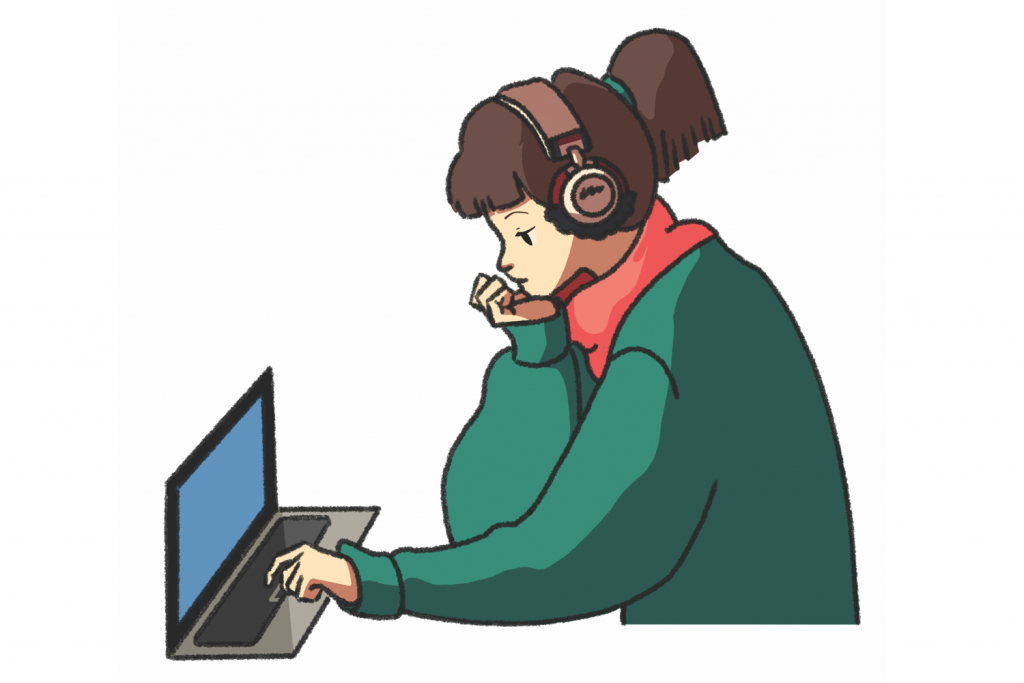In the absence of online assignments or a personal project to occupy my time, even casually scrolling through social media makes me feel anxious; I can never chase away the lingering sense of guilt for wasting free time.
Unfortunately, this is a common sentiment among young people of this generation. Although it has drastically affected day-to-day life, COVID-19 has changed little with regard to the academic and extracurricular standards we are expected to maintain.
The problem
Students in Palo Alto are well-acquainted with the competitive academic and work culture encompassing the Bay Area. As detailed in an October 2019 Verde article, Palo Alto High School students take pride in being the most stressed out due to the notion that overworking oneself should be celebrated.
Trying to fulfill this twisted sense of accomplishment ultimately causes us to sacrifice our well-being, and yet this harmful mindset is ingrained in our experiences as we navigate the global pandemic.
As the world shut down due to health concerns, cancellations of competitions and summer camps caused disappointment and panic for millions of students; a subsequent rush to replace these vacancies with more classes or projects ensued.
What really drives our subconscious need to always remain occupied?
Direct influences
Now more than ever, social media is a primary mode of communication and entertainment for teens, and exposure to huge amounts of content on the daily creates a vicious feedback loop of pressure to continuously begin new activities.
When I see other teens learning a new language or starting a business online, I get the impression that I am the only one not taking advantage of my spare time.
In turn, I resolve to fill my summer with classes and projects and unconsciously pressure people around me to pick up a new activity; thus the cycle continues.
“I don’t always share my personal struggles with my parents, so they add to that pressure [to be productive] without meaning to.”
— Emily Cheng, junior
Aside from the influence of digital platforms, parents may also be a source of unwanted stress.
“I don’t always share my personal struggles with my parents, so they add to that pressure without meaning to,” junior Emily Cheng says. “They remember my productive moments in a more positive light, so … they push me … [when I am] not studying as well as I should.”
Having a family who scolds constantly when an assignment goes unfinished or when their child is not doing enough to boost their college resume wears students down and only strengthens the culture of competition among students.
Though we should always be trying our best, we cannot possibly deliver our maximum effort forever without risk of burnout — and our best certainly shouldn’t be expected of us in the middle of a global pandemic.
Digital education
Over the course of the shelter-in-place order in California beginning on March 17, Bay Area students have had to rebuild their lives online and at home.
The sudden switch to online learning is neither as flexible nor as relaxing as it may first seem.
“At first, I felt less stressed because I personally like having more flexibility over my study time — but without any structure or routine at all, [digital learning] is slowly becoming almost harder than going to school in person,” Cheng says.
In addition, the lack of clear communication between teachers has resulted in a pileup of work.
When my calendar lists five Zoom meetings and 20 assignments due in one day, I inevitably wonder if teachers understand that this is a transitional period for everyone — they are sending a message that we should cram busy work into our spare time rather than prioritize our physical and mental health.
Relieving stress
Consistent breaks are necessary to cope with this pressure to be productive.
For me, painting, sewing, playing an instrument, watching Netflix, baking, going on a walk or even sleeping all day seem like perfectly valid ways to pass time as they make me happier.
This should not be a time for anybody to be required to do any activity, nor is it a time to limit ourselves from trying something new.
Though COVID-19 has had devastating consequences for many, we can still appreciate the opportunities it has given us to combat the culture of hyperproductivity and cut ourselves some much-needed slack.
RELATED STORIES
Sleepless students: Exploring generations of Vikes’ nights
Admissions: Impossible: A dive into Paly’s elite college culture



